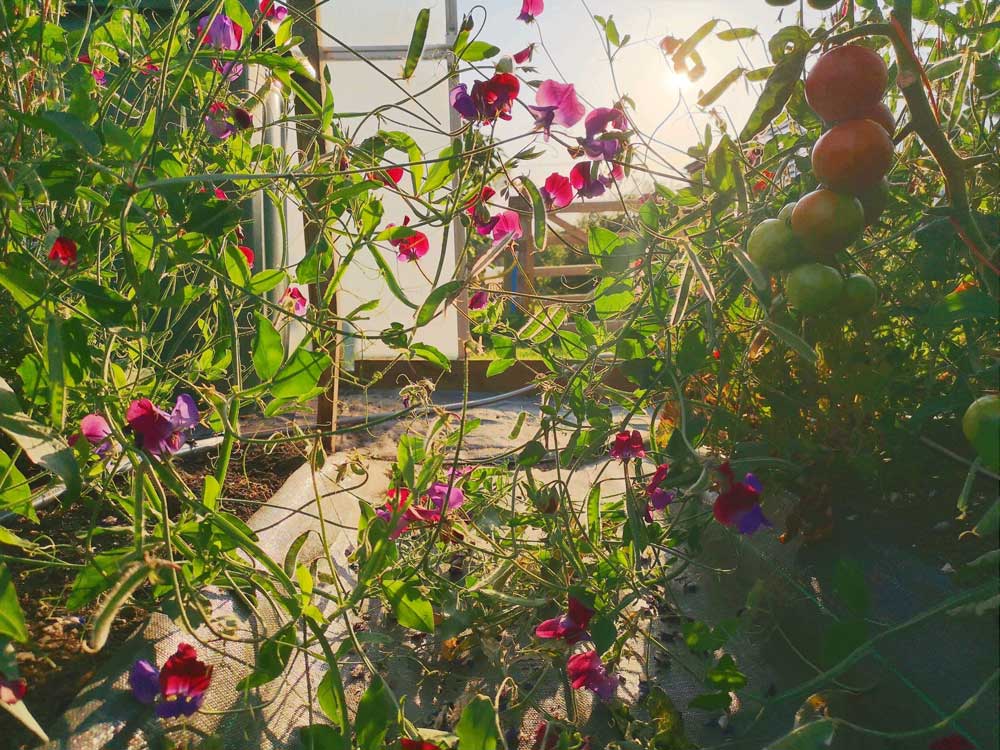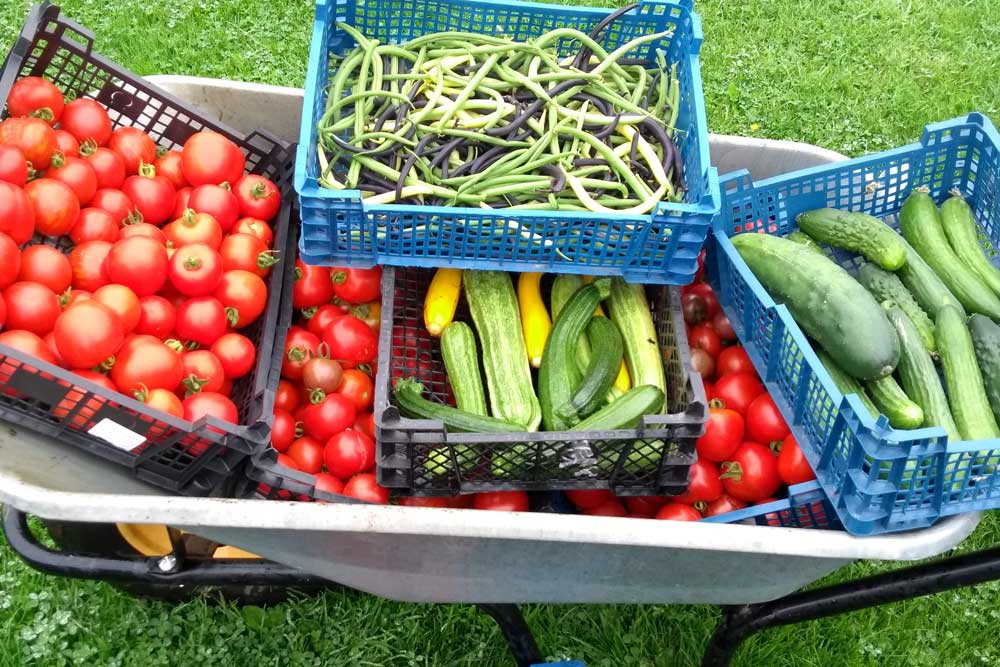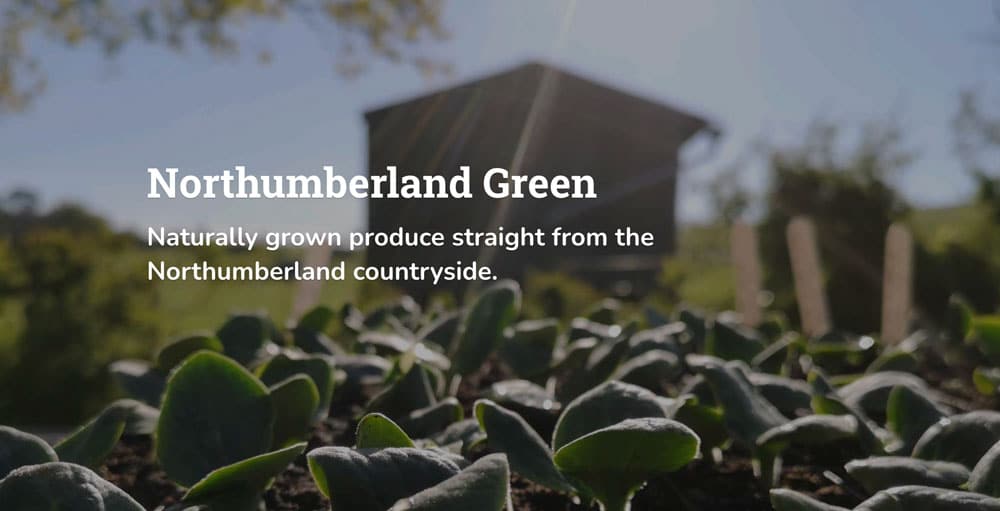
The environment
No chemicals
All our produce is grown naturally and following organic principles, without using chemical fertilisers, pesticides or herbicides.
No dig
We use the “no-dig” technique, a process which works in tandem with nature over the long term. No dig:
It’s also increasingly becoming recognised as a very efficient and successful way of growing salad, fruit and vegetables!
If you’d like to find out more about the no-dig technique, we’d recommend visiting Charles Dowding’s website. Charles is probably the UK’s foremost expert in this field, and Ian learned a lot from attending one of his courses a few years ago.
Encouraging insects
We plant flowers in our polytunnels to encourage local bee and insect populations. For the same reason, when our produce goes to seed (produces flowers) in the spring and summer we try to leave the plants in the ground as long as possible.
Irrigation
In 2020 we installed a rainwater harvesting system. Rainwater is captured by guttering along the sides of our polytunnels, and then drains into a tank. This is then pumped into storage tanks, from where we use it to irrigate the produce inside our polytunnels.

Packaging
Packaging options
We carefully consider our options with regards to packaging for our produce. While we recognise the downsides of using plastic bags for our salad and our leafy greens, our research has led us to come to the conclusion that, for now, this is the best option.
Unfortunately there are currently limited alternatives to plastic that we can use that would prevent our leaves from wilting within hours of being picked. This would lead to tremendous food waste, which has scientifically recognised negative consequences on global warming. Compostable bags are potentially an alternative, but the benefits of these are questionable.
So for now, we continue to package our leaves in plastic bags, while investigating other alternatives. We encourage our customers to recycle these bags, or return them to us for recycling.
Most of our other produce is supplied loose, in paper bags, or in biodegradable punnets.

Food miles
We only deliver locally
As we only supply local eateries and outlets, our crops don’t travel hundreds or even thousands of miles before reaching people’s plates!
As well as the obvious benefit of reduced carbon emissions, it also means our produce is super fresh when it’s delivered. Consequently (and unlike most produce imported from Europe) it lasts for ages in the fridge. This means less food waste, which is a major contributor to climate change.

